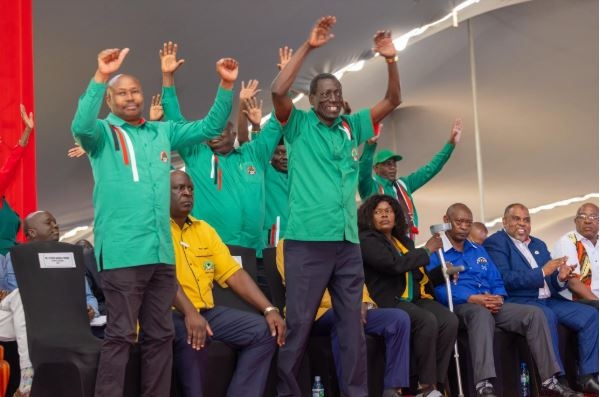Governors have confirmed the extension of the multibillion-shilling leasing contract for medical kits to select national and county hospitals.
Council of Governors’ Health committee chairman Anyang’ Nyong’o said each of the 47 counties will ink the contract to extend the deal by three years.
The Kisumu governor disclosed the extension has been arrived at after thorough negotiations to clear the controversies that have dogged the programme.
“The contract was extended after very extensive discussions between the CoG and the ministry [of Health],” Nyong’o told to the Star.
Nyong’o said that in the new contract, each county will pay for equipment supplied as per their needs, unlike the current method where the counties pay uniform amounts.
“That is no longer a mystery. Yes, we did all that analysis. We presented them. We met the ministry,” he said.
“So, they have to deal with each county individually. You can’t deal with everybody the same way. Each county will be entering into the contract according to their need.”
In the current contract, they make uniform payments even though the devolved units are not using the same items and others are not using theirs for various reasons.
“If your equipment was not supplied, you begin from there. And if you don’t want an MRI, for example, you cannot be charged for it,” he said.
Nyong’o did not, however, disclose the value of the new contract. Instead, he referred to CoG CEO Mary Mwiti or Health PS Susan Mochache for finer details.
The two did not respond to our inquiries.
At the end of the period, counties will have the option to buy, extend the contacts again or ask the supplier to take them away.
In the current financial year, Sh5.2 billion has been set aside for the programme with each county required to pay Sh110.63 million.
In 2015, the Ministry of Health and the counties signed a seven-year Sh38 billion Managed Equipment Service (MES) programme contract for the supply and installation of medical equipment.
The equipment was deployed to at least two facilities per county and the national facilities in a bid by the government to improve health services.
The contract was later reviewed and the value increased to Sh63 billion in 2017 after more facilities were included in the programme.
However, MES has been dogged with massive controversies with various players claiming it was designed to siphon public money.
In 2020, a Senate ad-hoc committee investigated the contract after governors claimed they were coerced and intimated by the national government to sign the deal.
Investigators revealed that some of the medical items delivered to the counties were lying idle in boxes and there was no room where they could be installed.
This is after the ministry allegedly failed to engage the counties for a proper feasibility study to assess their needs.
As the equipment gathered dust, the report showed, the counties continued to pay a uniform amount of cash every year through a grant provided by the Ministry.
In their report, the Senate panel concluded that the programme was designed as ‘a criminal enterprise’ to rip off the public.
However, the report was rejected by the House, which said it was full of generalities and thus not easy to act on.
“Everything in this report is wrong. I suggest that we appoint a special counsel to investigate and come up with a solution that makes sense to the people of Kenya,” Minority leader James Orengo had said.
“I propose that the report forms part of the investigation. I oppose it and leave it to the House to decide,” Orengo had said before the senators shot down the report.
But Nyong’o said the negotiated contract took into account all the concerns raised by the devolved units in the first phase of the programme.
“Each county will sign or pay according to their needs. Not just because the ministry has said you get this... no …. no. We are not going to do that,” he divulged.
Edited by A.N
“WATCH: The latest videos from the Star”















